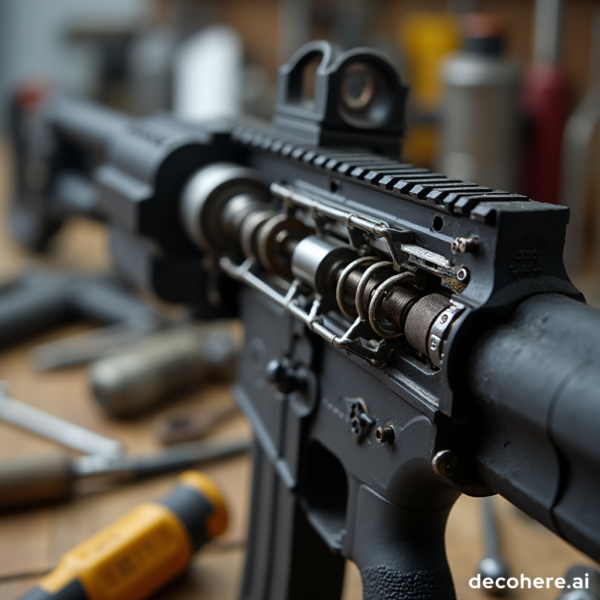Gaming WiFi Demystified: Speeds, Providers, and the Best Setup for Smooth Play
Understanding Gaming WiFi: What Really Matters?
Having the right internet connection is crucial for any gamer aiming to avoid lag, disconnects, and frustrating delays. While flashy marketing terms and high numbers are common, the essentials for gaming come down to three main factors: download speed, upload speed, and latency (also called ping). This guide explains which speeds are truly good for gaming, how major ISPs like Verizon and AT&T stack up, and what to look for in the best gaming WiFi setup.
How Much Download Speed Do You Need for Gaming?
The download speed required for gaming is often misunderstood. Most modern online games use less bandwidth than you might think. The minimum recommended download speed for online gaming is typically around 3-6 Mbps per device, and upload speed should be at least 1 Mbps. However, these are basic requirements; having more bandwidth is better, especially if others in your household are streaming or downloading at the same time [1] .
For a single gamer, 50 Mbps is sufficient for smooth gameplay, provided your connection is stable and latency is low. If your household has multiple users streaming, gaming, and working online, 100 Mbps or higher is recommended to prevent bottlenecks [1] .
Is 50 Mbps Good for Gaming?
50 Mbps download speed is generally considered good for gaming, especially if you’re the only user or have just one or two other devices online. This speed will support most online games, including fast-paced shooters and multiplayer titles. However, you may experience slowdowns if multiple users are streaming high-definition video or downloading large files simultaneously [1] .
Latency, not just speed, is critical. Even with 50 Mbps, high ping (over 100ms) can cause lag. Always test your connection’s latency before competitive play.

Source: mywifequitherjob.com
Is 100 Mbps, 500 Mbps, or 1000 Mbps Good for Gaming?
100 Mbps is more than enough for the vast majority of gamers, even in households with multiple users. This speed supports downloading large game updates quickly, streaming, and video calls alongside gaming [1] .
500 Mbps and 1000 Mbps (1 Gbps) are considered premium home internet speeds. These are ideal for large homes with many devices or streamers who regularly download huge game files, livestream, or upload content. Fiber-optic plans at these speeds typically offer lower latency, which is the biggest benefit to gamers who want the absolute best experience [2] .
In real-world terms, anything above 100 Mbps is more about future-proofing and handling multiple users, rather than a strict requirement for gaming itself.
Best Gaming WiFi: What Should You Look For?
The ideal gaming WiFi setup combines high speed, low latency, and reliable coverage. Here’s what to prioritize:
- Router Quality : Invest in a modern dual-band or tri-band router that supports WiFi 5 (802.11ac) or WiFi 6 (802.11ax) for optimal speeds and device management.
- Wired Connection : Whenever possible, use an ethernet cable for gaming. Wireless connections are more susceptible to interference and sudden drops.
- 5GHz vs. 2.4GHz : The 5GHz WiFi band offers faster speeds and less interference, making it better for gaming-especially in crowded apartment buildings. However, its range is shorter than 2.4GHz, so ensure your gaming device is close to the router [1] .
- Low Latency : Look for ISPs and routers that emphasize low latency/ping, not just high speeds.
Is Verizon Internet Good for Gaming?
Verizon Fios is widely recognized as one of the best internet services for gaming. With symmetrical upload and download speeds, low latency, and reliable fiber-optic infrastructure, it consistently performs well in independent speed and latency tests [1] . Plans range from 300 Mbps up to 2,000 Mbps, with no data caps and excellent consistency [2] .
Verizon 5G Home Internet is a viable alternative in areas without fiber. It offers speeds from 85 Mbps to 1,000 Mbps and competitive pricing, though performance may fluctuate due to network congestion and signal strength [2] .
To check Verizon Fios or 5G Home Internet availability, visit the official Verizon website and enter your address. If unavailable, consider major cable or fiber providers in your region.
Is AT&T Internet Air Good for Gaming?
AT&T Internet Air is AT&T’s fixed wireless 5G home internet service, with speeds typically ranging from 75 to 225 Mbps and latency between 30 and 60 ms [3] . These metrics are generally suitable for online gaming, especially casual or single-player titles.
However, fixed wireless services can be affected by network congestion and may occasionally suffer from connection drops or increased lag during peak hours. AT&T Internet Air does not always meet the FCC’s broadband definition at its lowest speeds, so if your speeds are consistently below 100 Mbps, you may experience occasional lag, especially in competitive multiplayer games [3] .
For the best experience, check your actual speeds and latency with online speed tests, and consider upgrading to AT&T Fiber if available in your area. AT&T Fiber offers speeds up to 5,000 Mbps and is highly rated for gaming [4] .
Is 5GHz WiFi Good for Gaming?
Yes, the 5GHz WiFi band is generally better for gaming than 2.4GHz due to its higher speeds and reduced interference. However, its shorter range means performance drops off quickly if you’re far from the router or there are many walls in between [1] .
For optimal results, keep your gaming device within one or two rooms of the router. If you experience drops or lag, try a wired connection or use mesh WiFi extenders to improve coverage.
How to Choose and Set Up the Best Gaming Internet
Follow these steps to secure the best gaming experience at home:
- Evaluate Your Needs : Count the number of devices and users. Multiply the minimum speed requirements by the number of gamers and add extra for streaming or downloads.
- Check Provider Availability : Use your address to check which fiber, cable, or 5G home internet services are available. Fiber is best, but cable and some 5G options are also good.
- Compare Plans : Look for plans with at least 100 Mbps download and 10 Mbps upload speeds. Prioritize those advertising low latency and unlimited data.
- Choose the Right Router : Select a router with dual- or tri-band WiFi (preferably WiFi 6 or newer), and configure it for 5GHz gaming. Enable Quality of Service (QoS) settings to prioritize gaming traffic.
- Test and Optimize : After setup, run speed and latency tests. Adjust your router placement, use wired connections when possible, and minimize network congestion during gaming sessions.
If you need help finding or installing the best internet service, you can:

Source: bestbuy.com
- Search for “fiber internet providers” or “best gaming internet” using your city or ZIP code.
- Contact local ISPs directly by phone or through their official websites.
- Visit electronics retailers for router recommendations and setup assistance.
- Consult online forums or gamer communities for real-world feedback on ISPs in your area.
Key Takeaways for Gamers
While super-high speeds like 500 Mbps or 1,000 Mbps are ideal for large households or streamers, most gamers will be well-served by connections starting at 50-100 Mbps, provided that latency is low and stability is high. For the best results, choose a wired connection, use a quality router on the 5GHz band, and select a reputable ISP with proven gaming performance such as Verizon Fios or AT&T Fiber.



